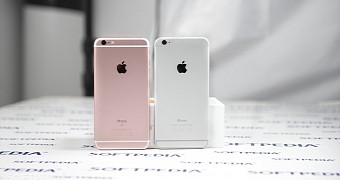The FBI still doesn’t want to reveal who hacked the San Bernardino terrorist’s iPhone and how much it paid for it, even though this particular information is the subject of a lawsuit filed by The Associated Press, Vice Media, and the parent company of USA Today.
In a report today, AP reveals that the FBI did share some documents regarding the investigation, but the 100 pages of records include tons of censored information, such as the identity of the vendor that helped officers break into the iPhone used by Syed Rizwan Farook, one of the terrorists involved in the December 2015 shootings.
At that time, the FBI seized the phone and requested Apple to unlock it, as the iPhone was protected with a password that the bureau wasn’t able to crack on its own.
Apple refused to help on security and privacy grounds, and the dispute was then moved to court where the FBI cited national security as the main reason why the Cupertino-based technology firm needed to unlock the iPhone.
Unknown group of hackers helped crack the iPhone
The lawsuit ended unexpectedly in March 2016, after the FBI revealed that a third party helped it break into the iPhone and extract the necessary information. Details on this third party have never been provided, and speculation indicated that the FBI was still in control of the hack which would have allowed cracking other iPhones as well.
Cellebrite, an Israeli security vendor, was rumored to be involved in the hack, but sources close to the FBI claimed that a different group of hackers who previously worked with the government in some other cases as well was behind the unlocking.
Shortly after the FBI managed to break into the iPhone, the aforementioned organizations filed a lawsuit against the bureau, asking for information regarding the third-party vendor that helped crack the device.
The media orgs claimed the public has the right to know how much the FBI paid for the cracking code and explained that it must demonstrate that the vendor acted only in the public interest.
In response, the FBI said that it censored such details in the court documents because they “might interfere with ongoing enforcement proceedings.”

 14 DAY TRIAL //
14 DAY TRIAL //